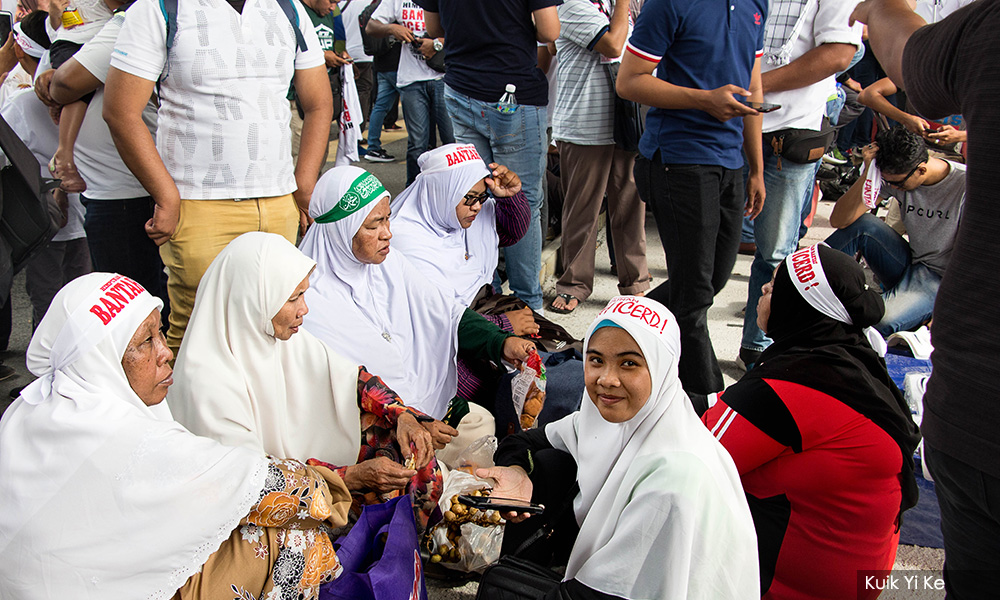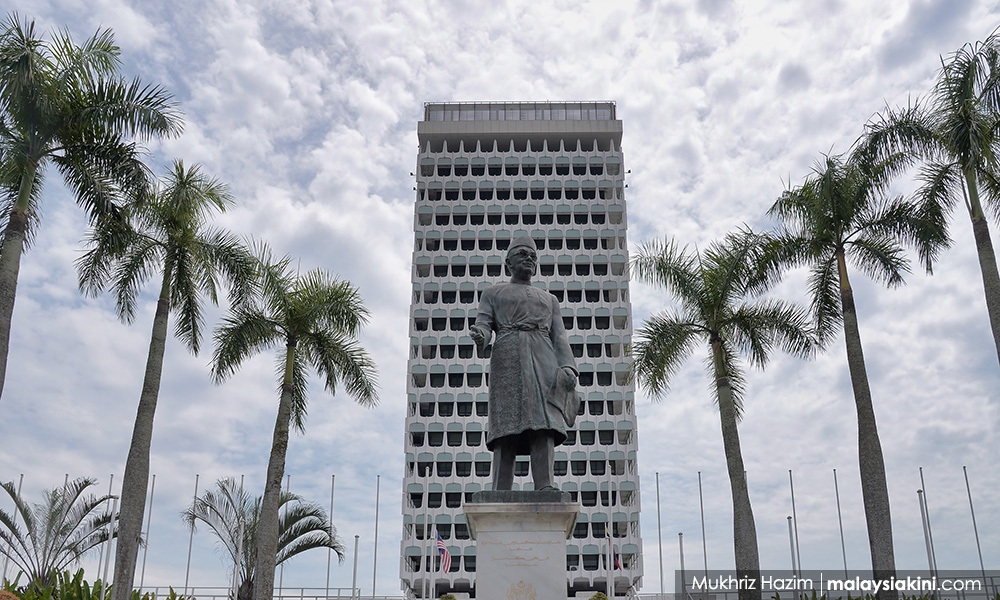MP SPEAKS | I call upon the cabinet to instruct the Legal Affairs Division (Bheuu) to prepare a green paper on the debated Fixed-Term Parliament Act (FTPA).
Unlike a white paper which indicates the government’s commitment and detailed plan for a certain policy or reform, a green paper facilitates public discussion by providing correct information on various proposals to solicit public feedback without committing the government to any proposal.
Green paper can check misinformation
Hence, the green paper has two important advantages compared to a comprehensive study that leads to a government’s position.
First, it is an open-ended invitation for all segments of society to contribute to the debate in an informed and factual manner.
Second, it can avoid a long delay which allows the building up of misinformation.
The green paper on FTPA should cover the following aspects to facilitate informed deliberation and dispel misinformation:
What are the variants of FTPA laws applied throughout the world? What are the key features that differentiate these variants? What considerations led to these laws? How are their implementation to date?
What are the feasible alternative models that may be adopted for Malaysia? What parameters from the global variants should be considered? Any innovation is necessary to suit our national conditions?
For the alternative model that Malaysia may consider, how would each of them affect the powers and functions of the Yang di-Pertuan Agong, prime minister, political parties in government, and parliamentarians?
Variants of FTPA have been implemented for decades in democracies from Norway, Sweden, Canada, Scotland, Wales, Northern Ireland, the Australian states, Germany, and not limited to the United Kingdom as many misperceive, with an abundance of research literature, a green paper is possible to be tabled at Dewan Rakyat before the first session in 2024 ends on March 27.
I am particularly concerned about two types of misinformation, which may be driven by limited understanding or ideological predisposition, and may dominate the debate so much so that FTPA may be politically unfeasible even if the government wants it later.
The first type of misinformation asserts that the FTPA would affect the Agong’s discretionary power to withhold the PM’s request for early dissolution of Parliament under Article 40(2)(b), as the UK’s FTPA did.
Such assertion ignores proposals by Bersih, which completely avoids constitutional amendment and leaves the king’s power untouched.

This misinformation could alarm many Malay-Muslim voters, who had staunchly opposed the International Convention on the Elimination of All Forms of Racial Discrimination (Icerd) in 2018 and the Rome Statute of the International Criminal Court (ICC) in 2019.
FTPA benefits Borneo regions, parties
The second type of misinformation targets the political elites and the public of Sabah and Sarawak.
Some opinion leaders are trying to create an impression that the FTPA would revive a BN-like new hegemonic coalition and that Sabah and Sarawak will lose the stronger bargaining power they have enjoyed since 2018.
For these opinion leaders, the stability of national politics and regional interests of the Borneo region is inevitably a zero-sum game. They fear the Madani government would become too strong and hence the FTPA must be stopped.
As a fifth-term parliamentarian from Sabah who witnessed and experienced the political turbulence since the Sheraton Move, allow me to list three benefits that a well-drafted FTPA may bring to Borneo-based parties and by extension, Sabah and Sarawak.
First, the FTPA must, in a package, entail amendments to the Dewan Rakyat Standing Orders to prioritise motions of no-confidence and confidence.

If any federal government in the future hurts the interest of Sabah and Sarawak, Borneo-based parties can easily move to unseat the government in the Dewan Rakyat.
As we witnessed under the speakership of Azhar Azizan Harun, government business takes precedence and motions of no-confidence never get to be debated.
Second, the FTPA would permanently close the door on the collection and counting of statutory declarations (SDs) by parliamentarians, reviving the pre-2009 (Perak) status quo.
The shadowy game of SDs hurts not just national political stability but also individual parties in the negotiation of government formation.
Because of SDs, Umno almost lost 10 votes in the post-15th general election inter-party negotiation. How could Gabungan Parti Sarawak (GPS) and other Borneo-based parties benefit from keeping the door of SDs open?
READ MORE: KINIGUIDE | What's a fixed-term Parliament, can it 'save' govt?
Third, the FTPA will prevent the PM from seeking royal consent for early dissolution at a whim. He would need two-thirds support from Dewan Rakyat. This practically means the PM cannot call for an early election at a time disadvantageous for GPS, Gabungan Rakyat Sabah (GRS), and other Borneo parties.
Time to consider state-level FTPA
If we can have a well-drafted FTPA that suits Malaysia’s needs, why should it be limited to the Parliament and not extended to all 13 state legislatures? The latter must, of course, be a decision made by each state, not imposed as in the case of anti-hopping law.
If we have an FTPA law for Sabah, unless the GRS-led state government loses its majority (almost impossible) or two-thirds of state assemblypersons support an early dissolution, the 16th state assembly of Sabah would serve until midnight of Oct 25, 2025.
What is wrong with such certainty? What benefits do we Sabahans enjoy with on-and-off rumours of an early election?

With a green paper, every state can have informed discussions on the matter both for the Parliament and their own assemblies.
As such, Putrajaya should realise the current top-down decision-making, basic decisions made first, state-level engagements later, can be off-putting, especially for Sabah and Sarawak.
We are tired of just being asked to take sides. We want an active role in the discussion. With a green paper, we Sabahans and Sarawakians can organise our informed debates and set our own agenda.
Wait-and-see is dangerous
Given the deeply divided nature of our society, green papers should be made a standard practice to introduce public debate on any reform that may be potentially divisive.
The government is wise to not push FTPA before a cross-party consensus emerges. It is, however, dangerous to adopt a wait-and-see approach to public discourse with no government input.
We must learn our lessons from the Icerd and the Rome Statute issues.
If the government does not lay down the parameters for rational discussion, the informational void for laypersons would be exploited by political entrepreneurs and political operatives who may not even own up for their misguidance.
Four years after Malaysia’s withdrawal from the Rome Statute, the Gaza tragedy broke out, and we could not refer Israel to the International Court of Justice (ICC) over its war crime in Gaza, as South Africa is doing.
Where are the four professors who so successfully campaigned against the Rome Statute now?
If we choose eventually not to have an FTPA, that should be a conscious choice based on values - majoritarianism and autonomy of individual parliamentarians on government formation.
And it should not be because of unfounded fears that this would weaken constitutional monarchy or the bargaining power of Borneo regions and parties.
WILFRED MADIUS TANGAU is the Tuaran MP.
The views expressed here are those of the author/contributor and do not necessarily represent the views of Malaysiakini.

